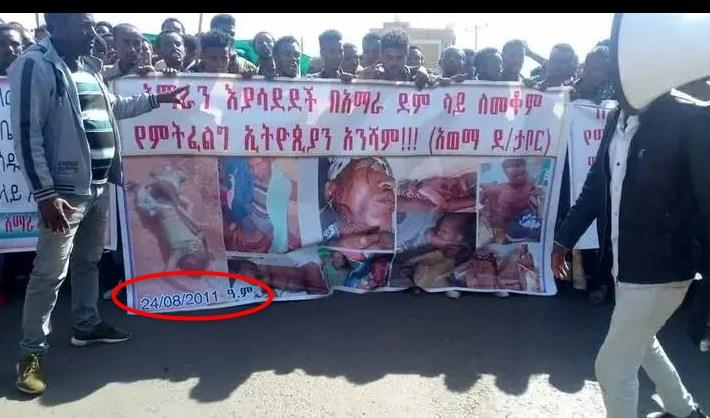
Post shares old images to claim soldiers support anti-government protest in Ethiopia
- This article is more than two years old.
- Published on April 11, 2023 at 16:21
- 4 min read
- By Tolera FIKRU GEMTA, AFP Ethiopia
“A protest supported by a military parade is being conducted in Debre Tabor now. Amhara will not unbuckle its belt, let alone its arms”, reads the Amharic caption of a Facebook post published on April 2, 2023.
The post, which has been shared more than 380 times, also includes a link to a Telegram channel and asks users to join for more information.
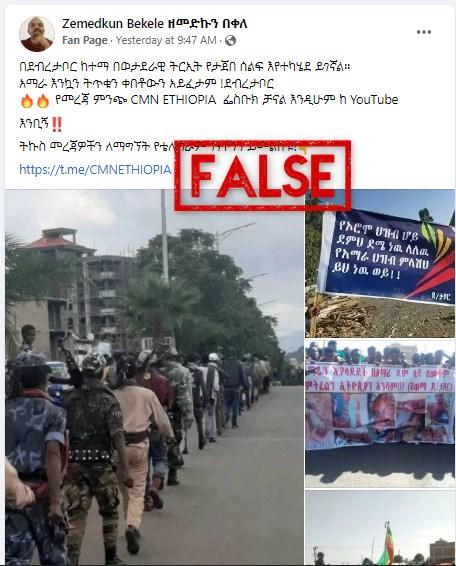
The Amhara ethnic group is the second largest in Ethiopia, after the Oromo.
AFP reported in April 2023 that protests were held in Amhara regional state against the federal government's decision to integrate regional security forces into federal forces.
Local media have reported divisions between Oromo and Amhara political elites (archived here) within the ruling Prosperity Party.
The Facebook post includes four images. The first shows a long line of people in military uniform carrying guns.
The other three show people holding different banners during what appear to be public demonstrations.
The banners feature slogans condemning the killing and displacement of people from the Amhara ethnic group.
Opposing rallies in two states
On April 2, 2023, rallies were held in Oromia regional state to celebrate the five-year anniversary of Abiy Ahmed’s inauguration as Ethiopia's prime minister.
On the same day, anti–government rallies were conducted in Amhara regional state.
The opposing messages during these rallies signal an escalating dispute (archived here, in Amharic) between political elites belonging to the Oromo and Amhara ethnic groups.
A two-year long war in northern Ethiopia ended with a peace deal between the government and the Tigray People’s Liberation Front (TPLF) on November 4, 2022.
However, ethnic tensions continue to simmer, threatening the country's stability.
But the claim that the images show soldiers parading during an anti-government rally is false.
Old photos
By conducting a reverse image search, AFP Fact Check found that the image showing the people in military uniform is actually from an incident during the Tigray conflict.
The image was originally shared on social media in October 2021, along with text attributed to an Amhara activist about fighting between the TPLF and Amhara security forces during the war in northern Ethiopia.
The post was shared by a page that frequently publishes content related to the Amhara people.
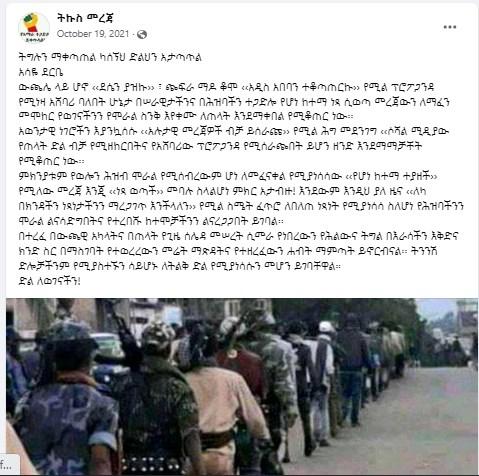
A reverse image search for the second photo, which shows a banner with an Amharic slogan, reveals it was shared on Facebook three years ago -- in February 2020 -- by a page named “Ethio Amhara Media”.
“The two Gondar towns: Debre Tabor and Gondar,” reads the caption of the post written in Amharic.
The slogan on the banner reads “Oromo people: is this your response to the Amhara people who showed you empathy ?”
Public protests broke out in February 2020 following the abduction of Amhara students from a university in the Oromia region.
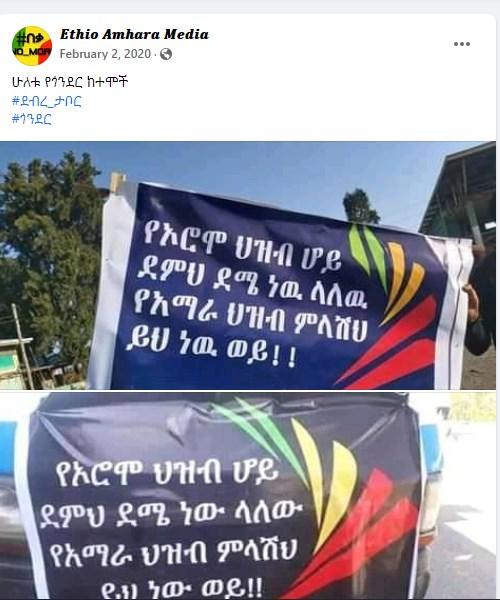
AFP Fact Check found the third image, also showing banners, came from a May 2019 protest in Amhara regional state against the killing and displacement of people belonging to the Amhara ethnic group.
The post was shared in May 2019 by a Facebook page named “Gihon Media”, which frequently shares pro-Amhara content.
“We don’t want an Ethiopia that will be built on the blood of the Amhara people,” reads the banner seen in the image.
Content warning
The date printed on the banner is April 24, 2011 in the Ethiopian calendar, which is equivalent to May 2, 2019.
Content warning
Massive demonstrations were held in many parts of the Amhara region on May 2, 2019, according to local media reports (archived here).
The fourth image shows a large crowd.
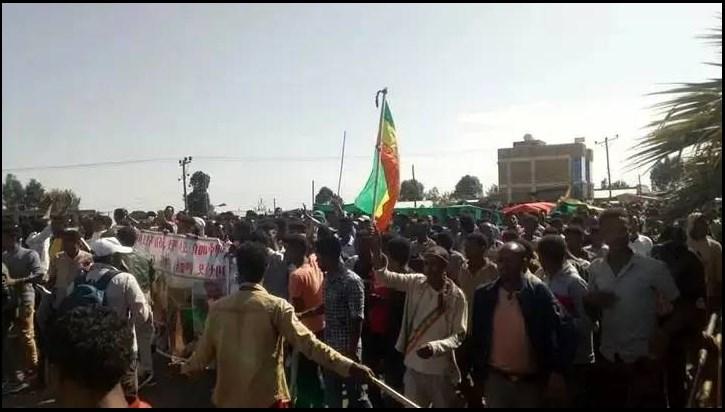
In this case, the image does not appear to be old. It was shared on social media in relation to the protest in Amhara regional state on April 2, 2023.
Copyright © AFP 2017-2026. Any commercial use of this content requires a subscription. Click here to find out more.
Is there content that you would like AFP to fact-check? Get in touch.
Contact us

